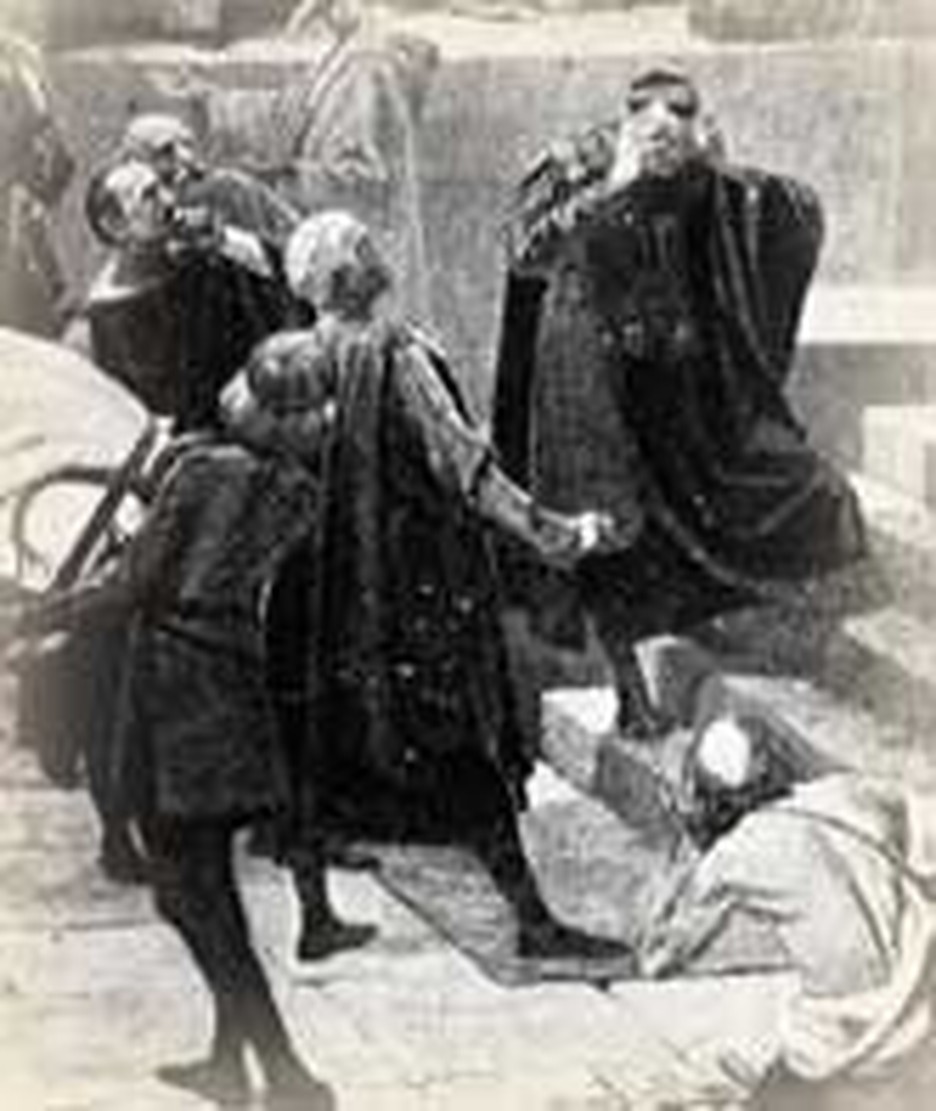
There are many turning points in church history. One of the most significant is little known by most Christians.
After Constantine's conversion he legitimized Christianity. Soon thereafter Christians in the Roman empire divided between Arianism (which denies the divinity of Christ) and Trinitarianism (which sees God as three persons in one being). The first universal church council, held at Nicea in 325, resisted Arianism; all but three of its Bishops voted for a trinitarian creed.*
Shortly after he came to the Imperial throne, Theodosius ended the Arian dispute by the simple expedient of issuing an edict. On this day February 27, 380 (some historians say 381) this edict commanded everyone to be a Christian--but not just any kind of Christian. A Catholic Christian, it said, was one who held that the Father, Son and Holy Spirit are one Godhead and equal in majesty. This, of course, was the position of the Nicene Creed. Theodosius' decision was the result of his upbringing: he was reared in a Christian home, perhaps the first emperor to enjoy that distinction. (His behavior wasn't always Christian, however, as the premeditated massacre of thousands of civilians at Thessalonica showed in 390).
The following year, Theodosius issued another edict specifically requiring worship of the one God according to the Nicene Creed. Theodosius deposed Demophilus of Constantinople an Arian bishop and replaced him with a trinitarian.
These laws (Theodosian Codes 16.1.2 and 16.5.6) are significant for many reasons. They mark the first time the legal code coerced people to become Christians. They made orthodox catholic Christianity the official dogma of the church and suppressed the Arian factions. The laws established a pattern which would become more pronounced as Theodosius' reign progressed of using the apparatus of the state to suppress diversity of religious opinion. The church can only regret that before all was done, people calling themselves Christians persecuted pagans, Arians, Manichees, and Jews. Many of the persecutors did not hold the name Christian out of zeal for Christ, but because it was politically correct.
*Although the trinity is hard to understand, the basis of the doctrine is found repeatedly in scripture, and some maintain that it makes more sense now than when it was first acceptedh, for we now have mathematics which describe multidimensionality. If God is infinite, as Christians teach, he must inhabit dimensions beyond the space-time we know. A trinity is consistent with this.
Bibliography:
- Aland, Kurt. Saints and Sinners; men and ideas in the early church. Philadelphia: Fortress Press, 1970.
- Durant, Will and Ariel. The Age of Faith. New York: Simon and Schuster, 1950.
- Fortescue, Adrian. "Theodosius I." The Catholic Encyclopedia. New York: Robert Appleton, 1914.
- Greenslade, S. L. (Stanley Lawrence). Church & state from Constantine to Theodosius. Westport, Connecticut: Greenwood Press, 1981.
- Ross, Hugh. Beyond the Cosmos, 2nd edition. Navpress, 1999.
- "Theodosius I." The Oxford Dictionary of the Christian Church. Edited by F. L. Cross and E. A. Livingstone. Oxford, 1997.
- "Theodosius I., Flavius." New Schaff-Herzog Encyclopedia of Religious Knowledge. Grand Rapids: Baker Book House, 1954.
- Various encyclopedia and internet articles.
Last updated May, 2007.








